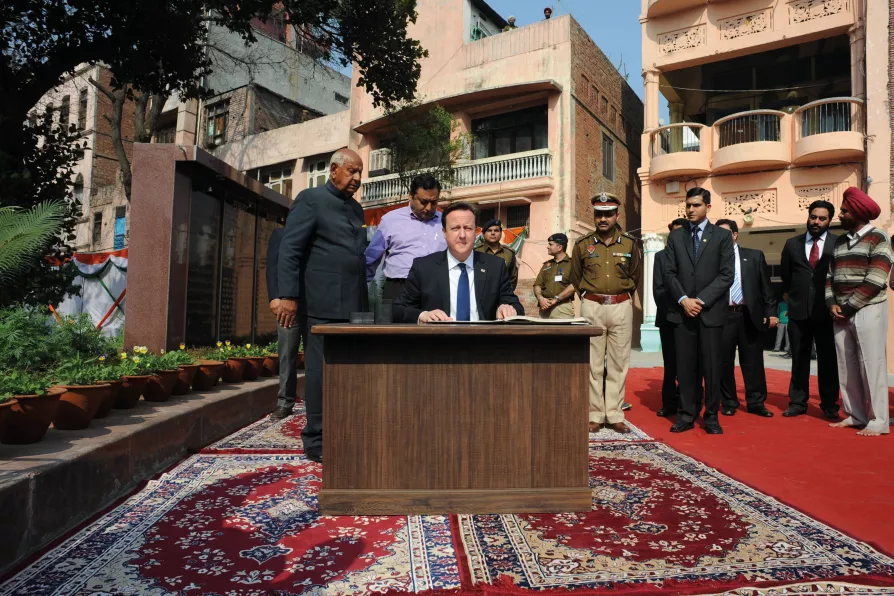Channel 4’s Dirty Business shows why private companies cannot be trusted with vital services like water, says PAUL DONOVAN

 NOT A FULL APOLOGY: Then prime minister David Cameron visits the
Jallianwala Bagh Memorial Garden and signs a book of condolence, 2013
NOT A FULL APOLOGY: Then prime minister David Cameron visits the
Jallianwala Bagh Memorial Garden and signs a book of condolence, 2013
THE British empire in India was built on piles of corpses and it did not let the blood, tears and sweat dry, from the battle of Palashi to man-made famines killing 29 million Indians and finally dividing the country before it was forced to leave.
The flip side of the history witnessed resistance to the British rule from the very beginning. Between 1765 and the national uprising of 1857-59, there were roughly 46 local revolts and uprisings against intolerable conditions including heavy taxes, confiscation of property, destruction of local industry, enforcing Christianity and ruling by coercion.
The 1857-59 revolt, though it was crushed, shook the British empire at its foundation. The challenge to the world’s worst brutal British rule continued until India achieved independence in August 1947. Anti-colonial challenges in the form of small local uprisings to nationalist and revolutionary movements.

RON JACOBS salutes a magnificent narrative that demonstrates how the war replaced European colonialism with US imperialism and Soviet power













